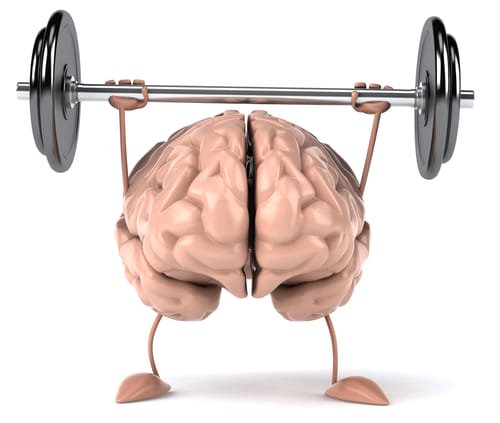
In a new study soon to be published in the journal Nature Neuroscience, researchers discovered that brain cells in an area of the brain called the medial eminence, located in the hypothalamus, can form new nerve cells. This comes as a surprise since the brain with the exception of the olfactory bulb, involved in smell, and the hippocampus, involved in memory, is unable to form new nerve cells once a person is mature. Now it appears areas of the hypothalamus that control a variety of bodily functions including hunger and thirst can make create nerve cells in response to certain signals. That signal seems to be a high-fat diet.
Do High-Fat Diets Reprogram Your Brain?
When researchers fed mice a diet high in fat, their hypothalamus produced new nerve cells even though the mice were adults. In contrast, mice that ate a regular diet didn’t produce these new cells. According to this study, a high-fat diet in mice stimulates the growth of nerve cells in the hypothalamus that control appetite even when mice are fully grown, a time when you wouldn’t expect to see new nerve cells created. The trigger for these new nerve cells? A high-fat diet.
In this particular case, new nerve cells aren’t a good thing. The new cells caused the mice to eat more and store more energy. That’s not a good thing from the standpoint of weight control or wealth. When the researchers shut down these newly-formed nerve cells using X-ray beams, the mice became more active and stopped gaining weight.
Does the Same Apply to Humans?
Whether this holds true in humans as well as mice remains to be seen. If it does, it may be possible to use medications or other treatments to turn off the rogue nerve cells that contribute to fat gain. This isn’t the first research to show the impact high-fat diets have on brain health. Another study showed that rats that ate a high-fat diet developed inflammation in their hypothalamus. This inflammation activated cells called glia and microglia to help repair the damage, leading to brain scarring.
Choose Your Diet Wisely
It’s intriguing that what you eat can damage and scar nerve cells that regulate appetite and control body weight or even cause the formation of new nerve cells that affect appetite or weight gain – another good reason to eat a clean diet. Fortunately, we can choose what we eat. Eating a diet high in calories or fat could make it harder to lose weight by altering nerve pathways in the brain that control appetite and fat storage. What you eat may actually “reprogram” your brain. At the other end of the spectrum, there are other foods that are good for your brain like antioxidant-rich fruits and vegetables. The key is to make the right choices.
References:
Medical News Today. “Neurogenesis Spurred By a High Fat Diet Encourages More Eating and Fat Storage”
Science Daily. “Eating a High Fat Diet May Rapidly Injure Brain Cells That Control Body Weight”
Related Articles By Cathe:
Brain Health, Body Weight and Exercise
Surprise! A Woman’s Brain Ages Differently from a Man’s
Exercise is Good for Your Brain as Long as You Make It a Habit
Is Resistance Training Good for Your Brain Health?

